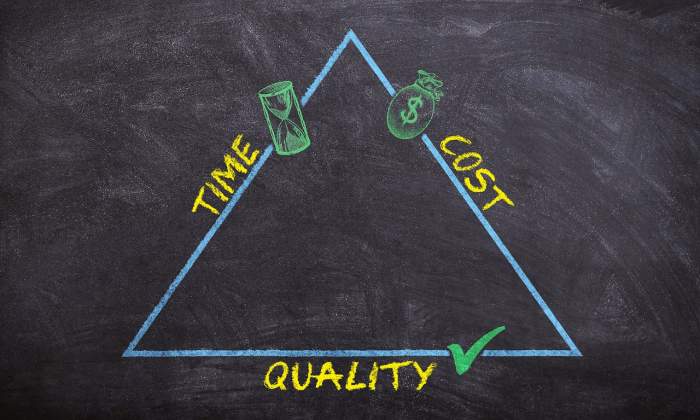 1.- The concept of Corporate Social Responsibility.
1.- The concept of Corporate Social Responsibility.
A first approach to the proposed concept makes us realize in an obvious way that it is composed of three elements:
- the foundation in the idea of responsibility,
- its clear side and social orientation
- the subject on which it is applied, ie , the company.
1.1- Companies in Corporate Social Responsibility.
Outside of what might seem, the term company, or its human side through the entrepreneur, does not have a long tradition.
In addition to being considered as a "company" any activity that requires effort and dedication to overcome it, the company has been assimilating fundamentally to a material derivative that considers it as the contractual nexus between the environment and the employer that allows the reallocation of economic relations, a factor that it channels the mechanisms that complete the function of economic markets through the accumulation and redistribution of resources.
In short, a company is any human activity of an economic nature that is designed and set in motion with the aim of generating results through the conduct of economic transactions.
And for this to happen, the specific human aspect of this whole process is embodied in the voice "entrepreneur", that is, any person who, by doing business and through it, assumes an inherent risk to the uncertain commercial performance, when undertakes an economic activity for the achievement of a result.
In this way, the entrepreneur assumes the uncertainty and risk involved in economic transactions and, through a constant adjustment activity between the prices he buys and the prices at which he sells, obtains an economic benefit.
The instrument, therefore, that allows you to carry out your activities is the company.
Definition:Company is that multi-organization structure directed by people in which, with the help of other people, recruited and trained for this purpose, we work towards a common goal and where, with the implementation of processes, techniques, tools and instruments, Achievements are achieved with the ultimate goal of obtaining an economic benefit that affects both the organization itself, its members and, consequently, the whole society. |
A first vision, on the other hand legitimate, claims that the vocation that has a company, and as a consequence the employer, is to achieve results, make money in the end. And this seems to be for many authors the only orientation that a business activity should have: to earn, and as much as possible, money from its owners and managers.
Nothing to object, except that ... The second of the terms that shapes the expression we are trying to unravel is assumed by its social connection.

We can not fail to take into account that the company is also a social invention, unavoidably rooted in society itself and inextricably linked to all its conditioning factors: legal, economic, relational, ... and human.
The connection between society and companies is absolute and oriented in both directions.
Thus, companies provide resources for societies to grow and improve; society and the state in turn provide numerous resources for them to also grow and improve in an interaction of mutual benefit.
In addition, the late capitalist model and its political and social correlate through the so-called Social and Democratic State of Law requires and compels an understanding between political and social power and economic power.
If we connect all this with the modern needs demanded by the social fabric, as well as with the ever greater specific weight that companies of all kinds suppose but especially multinationals and transnational and global ones, we realize the importance of interaction between companies and society.
Companies are increasingly large and powerful and it is the obligation of the political and legal environment to guarantee the defense of citizens against the possible abuses and mismanagement of macro organizations.

From there arise concepts such as "citizen enterprise", that is, those companies that have a deep-rooted and assumed awareness of their social influence or that of "social vigilance" which is the activity of control exercised by social actors and non-governmental organizations. government before the excesses of wealth generators.
In this way and as a third actor protagonist in this representation, between society and companies, there are the inescapable actions of control and redistribution that must be carried out by the State, who, on the one hand, must ensure respect for the rights of citizens, and that, on the other hand, it must provide the means for companies to exercise their functions within the framework of absolute legality.
Therefore, they try, directly, not to lose their relationship and contact with the world that surrounds them; internally attending to the demands and social aspirations of employees and externally heeding the warnings and requests that from the State and the Civil Society itself are constantly required.

From this new situation of balance between the Civil Society, the State and the companies themselves, new questions arise that the latter are making and that their other two interlocutors are asking them:
- • What is a company and what does it mean?
- • What obligations does a company have?
- • What are, ultimately, your responsibilities?
1.2- Responsibility
We need, therefore, to treat the third of the terms in the trilogy of elements raised a little above and that is, what we mean by responsibility and specifically how we apply it to companies.
We consider that the responsibility is, in general, the obligation to justify one's actions with respect to criteria or rules, in addition to the control thereof and, in the case of a negative judgment, the duty and obligation to assume the corresponding sanction.
If we apply it in particular to the corporate sphere, it means the voluntary integration by companies of social and moral concerns in their commercial operations and in their relations with their interlocutors (modernly called "stakeholders", that is, interest groups with that companies maintain relationships.

In slightly more technical terms, the development of a modern and advanced society requires companies to take good note of the social consequences of their actions, incorporating a more positive attitude in the consideration of needs, values and interests. social.
In short, it also involves a reaction of companies caused by the requirement on effective control of externalities and social costs generated by economic-business activity, because it is considered that the mere economic benefit can not be the only index of the social and economic efficiency of the contributions made by the companies.
"STAKEHOLDERS" or Interest Groups with which the company maintains relations:
- • Customers and Consumers
- • Personal
- • Suppliers, contractors and subcontractors
- • Business partners
- • Shareholders and owners
- • Competition
- • Economic and Financial Environment
- • Social Environment
- • Environmental Environment
- • Social forces
- • Trade unions and citizen associations
- • Public administrations
- • Local Communities
- • Social Communication Media
1.3- Types of business responsibilities:
- • The Economic Responsibility: that affects the obtaining of the maximum possible benefit as well as the achievement of the greater value that can be generated for the shareholder or owner.

- • The Sociocultural Responsibility: materialized in the realization of works of social or charitable interest or in the maintenance of an adequate consideration on them.

- • The Environmental Responsibility: in connection with the Sustainable Development and that affects the obligation that they have with the care of the environment and the natural environment.

All the approach expressed above maintains a link with formulations made from the very heart of the European Union.
Derived from the social model that we Europeans have considered the most appropriate for the government of the Union, the Commission based in Brussels designed a Social Action program for the five-year period 2000-2005, the basis for the development of Social Europe, where Social policy is considered as another productive factor.
In order to modernize the social model, especially after the European Council in Lisbon in March 2000, the sense of responsibility that companies should have regarding good practices in terms of lifelong learning, work organization, equality of opportunities, social inclusion and sustainable development; all within the framework of respect for business activity.

As a result of these requirements, the European Commission has shaped the model of Corporate Social Responsibility in several documents (such as the 2001 Green Paper, the modifications and increases of this basic document dated 2002 and, finally, the Communication of the year 2006) that they are the supranational canonical foundation for the consideration of CSR in Europe.
Likewise, in Spain and already assumed this common European approach as something necessary and unavoidable, CSR has become a legislative element through, among many other initiatives (to name a few, the conclusions of the Forum of experts on CSR of the Ministry of Work or the Subcommittee of the Congress of Deputies to promote CSR), the Decree Law of February 2008 that gives shape to the constitution of a national regulatory body in the figure of the so-called State Council for Corporate Social Responsibility.
This is the result of the consensus reached between political, administrative, social and even cultural forces and will allow the establishment of a single frame of reference for the development of CSR throughout Spain.
1.4- Conclusion
Therefore, and as a conclusion, CSR is, nowadays, an absolute reality, changing from being a fashion only a few years ago to becoming a way of understanding both companies and their relations with the general environment.
 All the images in this CSR Guide have been taken of the pixabay.com Platform under
All the images in this CSR Guide have been taken of the pixabay.com Platform under